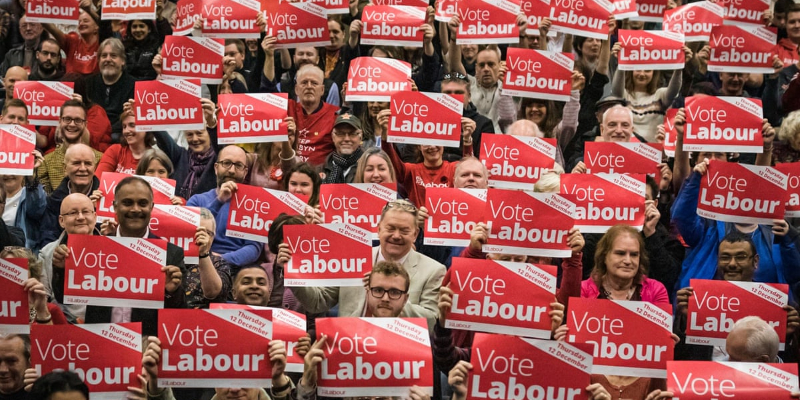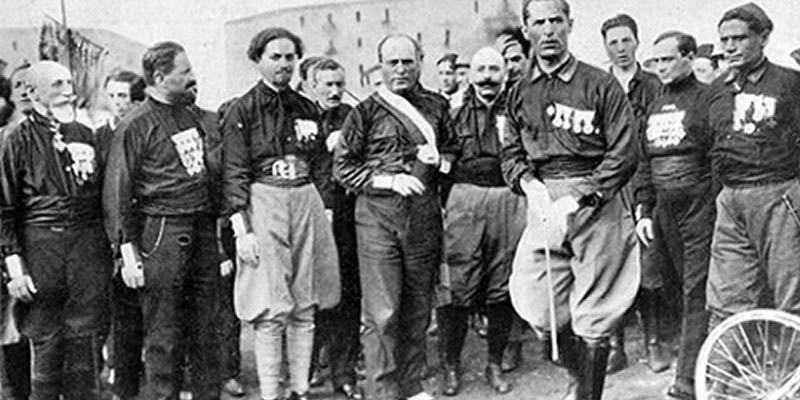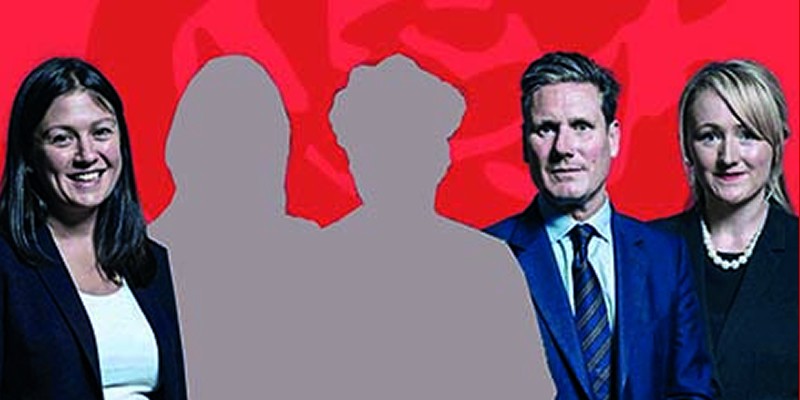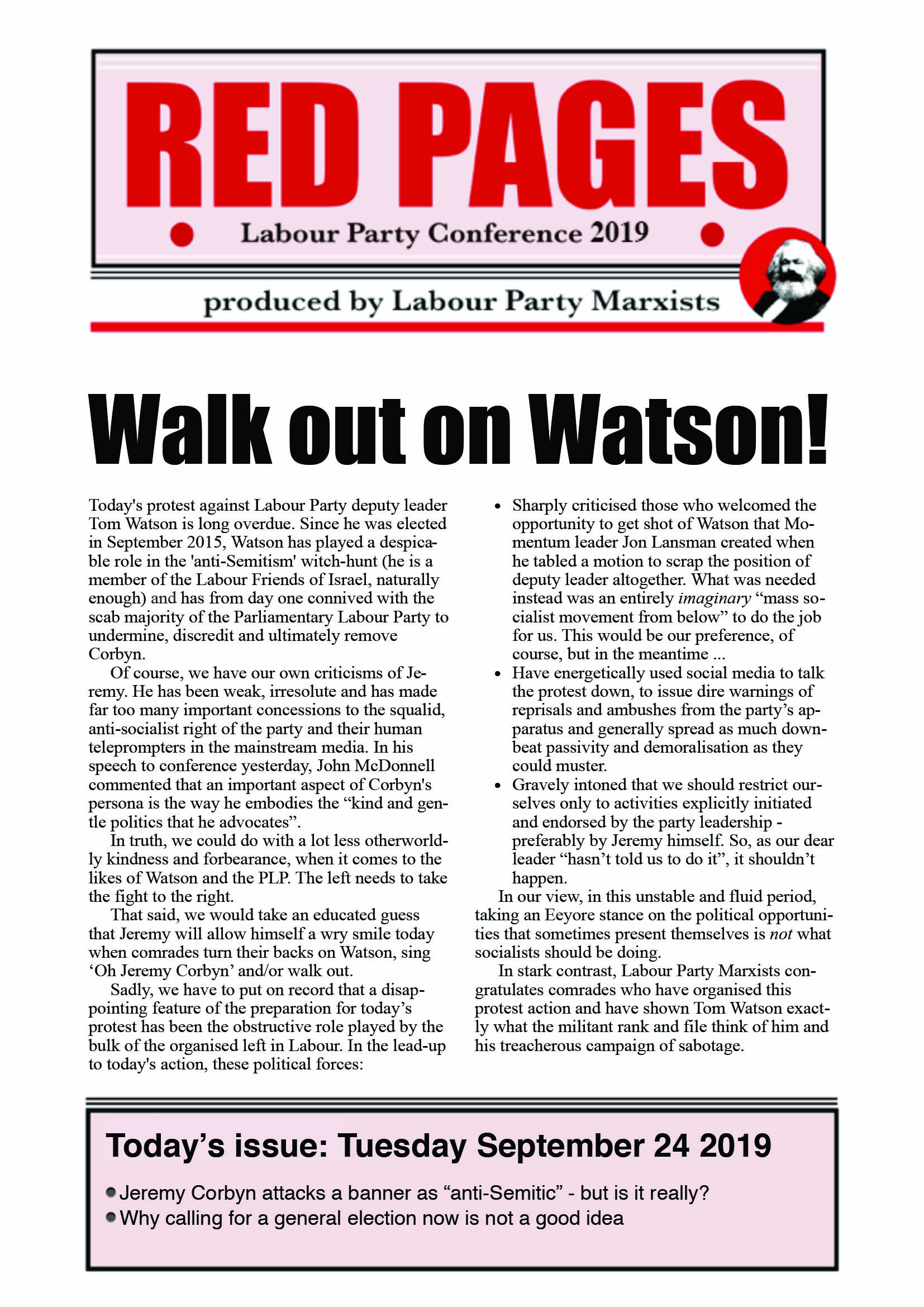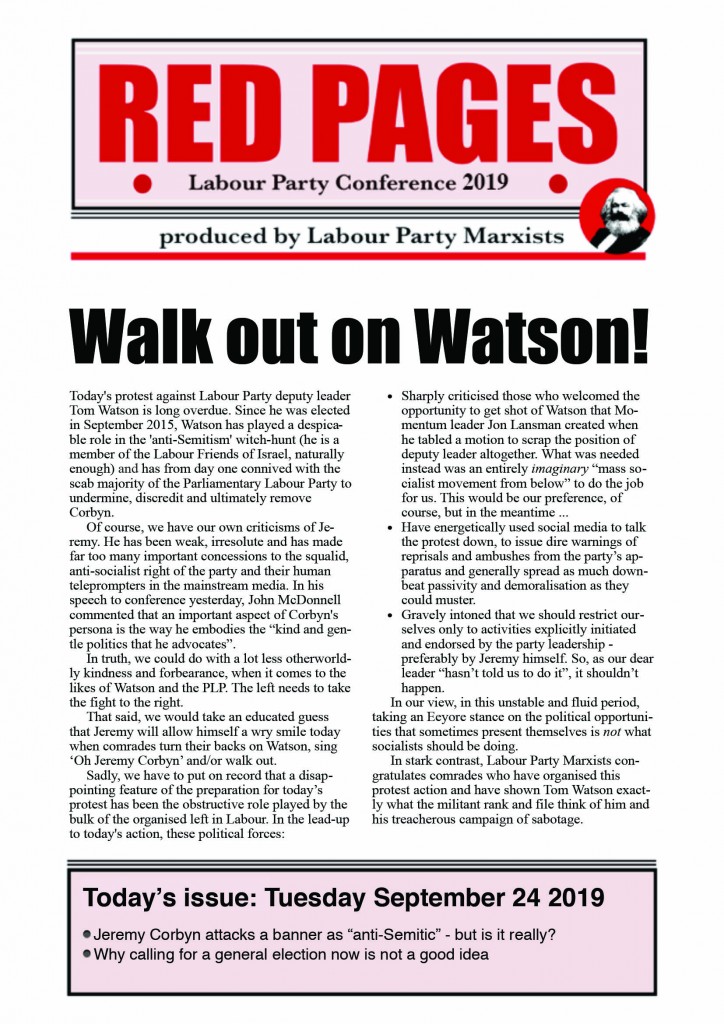Not only real, but counterfactual history too, can provide valuable political insights. Derek James reports on the Spring Communist University, held over the long bank holiday weekend of April 30-May 3
Organised by the CPGB and Labour Party Marxists, Spring 2021 CU, was designed, in part, to cast a sharp light on the momentous January 6 events in Washington. Titled ‘Coups, putsches and revolutions’, its aim was, though, designed not just to assess what exactly happened with Donald Trump, Capitol Hill, the boogaloos, the DC police and the servile GOP establishment, but to provide a much wider picture, so that we can draw operative conclusions when it comes to our own revolutionary practice in the future.
Speakers came from three continents, and there were participants from Britain, the Netherlands, Ireland, the United States and a whole number of other countries besides. There was, too, a wide range of leftwing opinions and factional alignments in contention. From our point of view, all very welcome. We positively seek to promote internationalism, frank and honest debate on the left and, of course, the unity that is only possible on the solid foundations provided by a principled Marxist minimum-maximum programme.
David Broder began the series of talks with ‘Mussolini’s march on Rome – glorious myth and sordid reality’. As he headed the world’s first expressly fascist regime, the study of Benito Mussolini’s rise to power is an important starting point for our understanding of the nature of fascism, and raises the question of how far we can define what happened in October 1922 as a coup. David outlined the main events leading up to the ‘March on Rome’ and how the fascist movement could be described as heading a “preventative counterrevolution” to deal with the challenge that the militant Italian working class movement posed to capitalism and the constitutional order. He argued that the fascists were not simply an instrument of capital, but constituted a middle class reaction which had its own dynamics.
Basing himself on this movement of the petty bourgeoisie, Mussolini was able to act as an interlocutor and a political broker between the movement and the liberal political elite, the state and the Catholic church. The March on Rome was in no way a ‘revolution’, but rather a piece of theatre – part of a process of political manoeuvres and negotiations between liberal politicians and Mussolini, which resulted in a coalition government in which the fascists were a minority. Comrade Broder argued that the consolidation of a fascist regime was drawn out throughout the 1920s and, although it resulted from a top-down process of integration which moulded existing state structures into a new order, its conservative economic policies and wage compression made it clear that Mussolini ruled on behalf of capital.
The resulting questions and discussion covered a wide range of issues, which also came up in other debates over the weekend. A key theme in this opening session was the nature of the working class movement during the ‘Red Years’ (1920-21) and the impact that the development of the Communist Party of Italy (PCd’I) had on the ruling class assessment of the threat of revolution in 1922. Comrades asked why the PCd’I had failed to mobilise any effective response to fascism and discussed the impact of the Communist International’s intervention on the development of the party’s strategy. It was clear that communists internationally were faced with a new phenomenon in the form of fascism, and this was reflected in the shifting assessments of the possibilities of both revolution and fascist counterrevolution in Italy.
Furthermore, the formation of the PCd’I was coterminous with the emergence of fascism, while the debate within the international communist movement on the united front was at an early stage in 1922. For many comrades this raised the significant distinction between the united front and the popular front, and the ways in which communists should work to mobilise the labour movement against fascism and win the working class for socialist revolution were also important topics in the discussion. The issues of class, party and leadership, which were so clearly posed by the development of fascism and the consolidation of Mussolini’s regime, were of central importance and would re-emerge elsewhere in the revolutions and counterrevolutions of the 20th century.
In the following session Kevin Bean considered whether Hitler’s November 1923 ‘beer hall putsch’ was a ‘dress rehearsal for 1933’. He outlined the history of the ‘national socialist’ Nazi Party and its early development in the turbulent period of revolution and counterrevolution in Germany in the aftermath of World War I. In particular he described how the beer hall putsch illustrated the petty-bourgeois composition of the Nazi movement and its relationship with elements of the state and the ruling class. In tracing the political, social and economic dynamics that enabled the Nazis to grow into a mass movement and a significant electoral force following the 1929 great depression, comrade Bean showed how the crisis had a major impact in radicalising the petty bourgeoisie. He stressed that, whilst the Nazis had developed “autonomously” and were not simply instruments of capitalist rule, key sections of the state and the army, along with conservative and reactionary politicians, saw Adolf Hitler and his movement as useful allies to be deployed against the left and the working class. As with Mussolini, Hitler’s assumption of power as chancellor was not a ‘revolution’, but rather represented a political manoeuvre, in which German capitalism helped the Nazis to gain control of the state and launch a concentrated counterrevolutionary assault on the organisations of the working class. While the traditional bourgeois and petty bourgeois parties were eventually all abolished, the fundamental economic structures of capitalism remained untouched.
The relationship between Nazism and big business was a major theme in the subsequent discussion, along with the related question of how close Germany was to socialist revolution in this period. Attention was paid by comrades to the analysis and strategy that the Communist Party of Germany (KPD) adopted to combat the Nazis. The KPD’S so-called ‘third period’ strategy, its description of social democrats as ‘social fascists’ and the party’s failure to build an effective united front of working class organisations to fight Nazism were important topics in the discussion.
Many comrades were clear that it was the function of Nazism as a counterrevolutionary movement and its relationship with capitalism that we should stress. Above all, there was general agreement that the contemporary insights of Trotsky and his description of fascism as the mobilisation of the petty bourgeoisie into a movement – a “battering ram” – that can smash the labour movement in order to maintain the rule of monopoly capital, were useful guides, both in analysing the reasons for the defeat of the German workers’ movement in 1933, and for understanding the function such movements might play again in the future. Given the widespread tendency by many on the left to indiscriminately label all authoritarian governments and rightwing politics as ‘fascist’, this theoretical and historical clarity is vital if we are ever going to move beyond the politics of slogans and ahistorical labels.
Kornilov to Trump
The talk by Lars T Lih, on ‘How the August 1917 Kornilov coup was defeated’, discussed one of the turning points during the Russian Revolution. Lars reconsidered the widely accepted account of the attempted coup by the ex-tsarist general, and the way in which it was defeated, by taking a fresh look at the contemporary evidence and assessments of the attempted coup. He focused on the key concept of power (vlast, in Russian) in the politics of the revolution, and how conflicts about the class nature of ‘the vlast’ played out in different approaches to the army. Lavr Kornilov and the provisional government wanted to restore the old discipline, and that meant getting rid of soldiers’ soviets, long political debates and demands for the election of officers. The Bolsheviks wanted exactly the opposite.
Lars went on to look at how the defeat of the coup strengthened the left in general, and the Bolsheviks in particular. The generally accepted view on the left – reinforced by the accounts of Leon Trotsky and John Reed – was that the Bolsheviks had taken the lead in mobilising workers and soldiers to resist Kornilov and to undermine the coup by fraternising with his troops, and that this success had boosted the Bolsheviks after the low point of the July Days, when they had been driven underground, and proved to be the beginning of a sustained surge in support that culminated in the October revolution.
Lars was unsure that the Bolsheviks, as such, played the leading role, although he agreed that the soviets, where the Bolsheviks were strong, were the vital agencies for mobilising support to counter Kornilov. For Lars, the important results of the Kornilov affair were the strengthening of ‘anti-agreementism’ and the further undermining of support for Aleksandr Kerensky and his government. For the Bolsheviks, the soviets had come back to life and proved that they constituted a real and effective vlast that could now govern Russia and carry out the demands of the working class and peasants.
The discussion that followed his talk turned on both the specific and general aspects of Bolshevik tactics during the crisis. What were the political implications of the Bolsheviks’ united front strategy against Kornilov, and how applicable is it today? Some comrades made a distinction between political and military support and saw the Bolshevik approach as taking the form of a bloc with Kerensky and the provisional government against Kornilov. However, others suggested that, as war is the continuation of politics by other means, military support is political support in its most concentrated form. Thus, Bolshevik statements that they did not support the provisional government, and acted solely in defence of the soviets against the landlord-bourgeois reaction represented by Kornilov, should be taken seriously – not casually dismissed in service of unprincipled backing for various reactionary ‘third world’ regimes and movements.
Alongside this was the Bolshevik strategy of arming the working class and splitting the army rank and file away from the officers and the high command. This was key to the Bolshevik seizure of power, and today’s left should likewise take the issue of the army seriously if it wanted to build a movement to successfully overthrow the capitalist state. It was also clear from both Lars’ account and the responses that the study of revolutionary history is vitally important – not as a simplified ‘authorised version’, but rather as a subject for constant research and re-examination following a close, accurate reading of the primary evidence.
Alexander Gallus, from the American magazine Cosmonaut, led the discussion on ‘Left responses to the events of January 6’. He began by outlining some of the different positions on the left in the United States on what most saw as an attack on democracy, but found it hard to clearly define its character as an attempted coup. The two poles of the varying responses, he suggested, were provided by Left Voice and the Communist Party of the USA (CPUSA). There are those who see the storming of the Capitol as somehow representing working class anger against the political and economic system. Therefore there should be no siding with bourgeois liberals in condemning the attack. Others argue that Hitler had come to the USA and, that, therefore, we had to support Joe Biden to save democracy from an existential threat.
Alexander traced the origins of the attack to Donald Trump’s capture of the Republican Party and his constant questioning of the legitimacy of a Biden election victory. The protest was disorganised and, having wound up his followers, Trump departed the scene and denied all responsibility. Comrade Gallus went on to look at the wider political implications of January 6 and the first months of the Biden presidency for the development of the left in the US. The immediate task for the left, he said, should be to focus on raising working class awareness and class-consciousness by calling for the political independence of the labour movement, rather than remaining tied to the Democrats.
In the following discussion a number of comrades from the US offered a range of perspectives, both on January 6 and the long-term strategy for the left. There were differing assessments of the coup attempt, but most comrades argued that it was part of a strategy to create chaos in an attempt to change the outcome of the presidential election. Given Donald Trump’s position as head of state and commander-in-chief, this was a serious action – a self-coup that had some of the characteristics of Louis Napoleon’s 18th Brumaire, one American comrade argued. All were agreed that these dramatic events were very significant and showed the uncertainty and instability at the heart of the world hegemon.
As might be expected, the future of the Democratic Party was central to the debate. Some contributions looked at the early stages of Biden’s presidency and what his present neo-Keynesianism told us about the orientation of the US capitalist class and its relationship with the Democrats. Was it possible to develop a clear political differentiation between bourgeois politicians and the left by working within the party and standing on a Democratic ballot? One response rejected this argument and suggested that instead the left must make a savage critique of the Democrats and go for a clean break. Above all, demands for political independence should not be limited to simply calling for a ‘Labor Party’, but should instead focus on building a revolutionary Marxist party and a programme committed to the real transformation of the US.
Middle East
‘The August 1953 coup against Mohammad Mossadegh – the CIA’s first Middle Eastern coup’, a talk given by Yassamine Mather, looked at the role of the US and Britain in overthrowing the elected prime minister in Iran. Yassamine provided a detailed background to the history of British and later American interventions in Iran, focusing both on oil and diplomatic interests, as well as explaining the close relationship between the ruling Pahlavi dynasty and British imperialism. The nationalisation of the British-owned oil industry in 1950 raised tensions between Iran and the British and formed the immediate backdrop to the coup. According to official documents released in the last 10 years, the CIA and its British counterpart, MI6, cooperated in 1953, using local agents to spread disinformation and build tension within the country. Significantly they also attempted to press the shah to dismiss Mossadegh and reverse his policies.
Whilst the shah dithered, Mossadegh seized the initiative after hearing rumours of a coup and mobilised the army to protect his position in Tehran. Despite appearing to have the upper hand, events then moved quickly against him, following a pattern of US intervention that would become familiar over the next 50 years. Local gangs, religious leaders and a wide range of ‘dirty tricks’ were used to encourage division, violence and disorder to undermine Mossadegh’s government over a four-day period in August 1953.
The CIA also persuaded policymakers of the necessity for intervention by stressing the threat to western interests posed by the ‘official communist’ Tudeh party. Troops from a rural background and loyal to the shah entered Tehran to ‘restore order’ and the US client, general Fazlollah Zahedi, was declared prime minister. This was followed by executions and thousands of arrests, which crushed the opposition and consolidated the shah’s regime.
Comrade Mather stressed that these events took place in the context of the cold war and long-standing diplomatic rivalries between imperialist powers, and later the Soviet Union, for control of Iran. She argued that the overthrow of Mossadegh’s regime helped shape Iranian politics in the years that followed and reinforced an existing hostility to foreign intervention in Iranian affairs. Above all, the coup against Mossadegh provided a model for US policy in organising future coups ‘on the cheap’ – without the direct intervention of American troops and all the bother of openly controlling a country.
In the discussion comrades looked at both the specific history and politics of Iran, and the wider issue of neo-colonialism and the cold war. There was a particular focus on the nature of imperialism and its historical origins.
Esen Uslu’s outline of ‘Turkey 1980 – the nature and the significance of the generals’ coup’ began by giving us a very detailed account of the role of the army in Turkish politics and society in the 20th century. He explained the importance of the army in the nation-building project following the end of World War I and the disintegration of the Ottoman empire, and the ways in which capitalism was developed to sustain the power and role of the army. Given Turkey’s membership of Nato and its pivotal role during the cold war, the significance of the Turkish army as a political force increased in the post-1945 period, alongside the development of a military-industrial complex within the country. Comrade Uslu also stressed the importance of wider Turkish economic development, which not only resulted in the growth of an urban working class and a decline in the rural-based population, but also saw militant protests and revolutionary politics emerge in the 1960s.
In response to this growing opposition, the right launched the ‘Grey Wolves’ campaign of violence against the left and the working class movement, which only intensified the tensions and polarisation in society. The September 12 1980 coup aimed to restore order and further modernise the Turkish economy and society under the aegis of the army as the embodiment of the nation. Turkey was opened up to foreign capital, and state controls over key areas of economic life were lifted. This was combined with the repression of the opposition by the generals, who detained over 100,000 political prisoners in an attempt to stabilise the regime.
Esen also discussed the development of the Communist Party of Turkey and its record. He argued that its version of proletarian internationalism was not really related to the other struggles going on in the region: it saw the world and its neighbours through the prism of the USSR and its state interests. However, given the diplomatic support the USSR gave to the generals’ regime for its own strategic purposes, the party’s leadership was clearly in a bind and failed to adequately respond to the crisis: the result was that critics of the leadership who wanted a more determined opposition were expelled.
These issues were taken up in the discussion, along with the question of how far the coup could be accurately described as ‘fascist’. Comrades pointed to the size and militant nature of the working class movement, and how, despite that, the general’s coup all but destroyed the Turkish, as opposed to the Kurdish, left. Comrade Uslu agreed that ‘fascism’ should not be used as a catch-all term and that revolution was impossible without splitting the army.
The discussion also considered recent developments following president Recep Tayyip Erdoğan’s defeat of an attempted coup by dissident army units. Has the army finally been tamed? Esen thought not. There is, after all, the ongoing war against the Kurds and Turkey’s wider strategic ambitions in the eastern Mediterranean, north Africa and in the Turkic-speaking regions to the east. The possibilities of conflict in all these regions and the impact of this instability on the working class movement were also raised as being important factors in the immediate future.
Finishing off the sessions on military coups, Joel Beinin talked about ‘The Egyptian coup d’état of July 3 2013’. Again, this was a very detailed, informative account, which gave a clear picture of the role of the army in Egyptian society from the 1950s and the nature of the various movements and protests in the period before the 2013 coup. Joel detailed the relationship that the army had to the various elites in Egyptian society, as well as their relationship with the US. He outlined the protests against the Mubarak regime in 2011, explaining that the various strands, such as the movement amongst the youth, the protests against police repression and the demands from the intelligentsia for democracy, had little regular contact with the working class – which developed a rapidly increasing willingness to protest and strike over its own, largely economic, demands during this period.
The events of January 25, which overthrew president Hosni Mubarak, were, comrade Beinin argued, “half revolution, half coup”, with the army ‘joining’ the uprising and assuming power through the Supreme Council of the Armed Forces – which remained in control until the inauguration of Mohamed Morsi as president in June 2012. Morsi was the candidate of the Muslim Brotherhood – the only organised group with a national profile and coherent structure in a position to mount any real challenge to army dominance. Conflict between the elected president and the army culminated in a popular campaign for his recall, organised covertly by the army and military intelligence and supported by the Saudi and United Arab Emirates regimes.
Tensions mounted, as large-scale demonstrations – crucially those in Cairo’s Tahrir Square – demanded that Morsi resign in June 2013. The army stepped in, using the familiar arguments about ‘restoring order’, and deposed the president. The coup drew in a range of support from the independent trade unions, feminists, leftists, liberals and Salafi Islamists. Those opposed to the army’s overthrow of the elected president included, of course, the Muslim Brotherhood and regional powers such as Turkey, but not the left. The coup was met with demonstrations by the Brotherhood, which in turn faced severe repression and brutal violence by the army.
During his discussion of the post-coup period, comrade Beinin looked at the role of the US and its support for the Egyptian army. He also discussed the role, social composition and politics of the Muslim Brotherhood.
Another important issue was the position adopted by the left, both in Egypt itself and internationally. What should our position be towards a reactionary movement like the Muslim Brotherhood and how should we react to the overthrow of an elected president like Morsi by the army? Surely, the left ought to be able to oppose the army and yet not support the Brotherhood. Surely, the left could defend a revolutionary situation and the democratic space that had been gained after the fall of Mubarak, against what was the army’s restorationist coup.
The political gymnastics undertaken by the Socialist Workers Party in Britain and its Egyptian co-thinkers in the Revolutionary Socialist group showed the ideological and political bankruptcy of many on the left. It seemed to the comrades taking part in the discussion that this would continue to be a recurring pattern in the absence of a working class party that could generalise and unite the various protests around a coherent programme as a force for socialist revolution and transformation – not only in Egypt, but throughout the Middle East. Interestingly, comrade Beinin, a member of the Democratic Socialists in the USA, refused to advocate a party. It is, apparently, a failed model … Egyptian workers will find their own way forward. True, in part … but sooner or later Egyptian workers will of necessity form themselves into a party (not this or that confessional sect).
Napoleon to Trump
Mike Macnair’s discussion of ‘Louis Bonaparte’s 1851 self-coup: the army, universal suffrage and referenda’ took us back to one of the seminal works of Marxism, which still has a great deal to say to us about how we can understand coups and the role of the state during a political crisis and a revolutionary period. Mike began with an account of events in France following the February 1848 revolution and the suppression of the French workers’ movement during ‘June Days’. He explained the dynamics of the revolutionary period and showed how, in the aftermath of this repression, the ‘alliance’ between the working class and the republican middle class was shattered.
One of the results of the revolution was a new constitution, which granted manhood suffrage and a government headed by a directly elected executive president. The ‘Party of Order’ in the national assembly had hoped to elect a president – general Louis-Eugène Cavaignac, the butcher of the June Days – who could ‘save society from anarchy’, but it was Louis Napoleon Bonaparte who was elected in a landslide. In building support and consolidating his power, Bonaparte utilised latent nostalgia for the glories of the Napoleonic period, but also presented himself as both a man of the left and a supporter of the Catholic church, as the occasion suited.
Comrade Macnair discussed Bonaparte’s strategy after his election and the way in which he was able to manoeuvre and manipulate the divisions in the assembly and the Party of Order, alongside a media campaign to spread fake news. By placing the assembly in the wrong because they wanted to restrict male suffrage, he gained the advantage, which allowed him to move against his opponents in December 1851. His ‘18th Brumaire’ entailed bringing loyal troops into Paris and arresting leading members of the assembly. He followed this up with a plebiscite, which gave him a 92% vote in favour of extending his term in office – and a further consolidation of his power in November 1852, which saw the re-establishment of the empire – this time confirmed by a 96% majority in a referendum.
Mike concluded by looking at the role of plebiscites and manhood suffrage in legitimating the coup, together with the significance of Marx’s analysis of the character of Bonapartism. He argued that Marx’s writing on this is still taken seriously by many bourgeois historians and commentators, but that does not mean that we should treat his work as an infallible text, to be learnt and repeated ad nauseum as ‘holy writ’. Thus, he argued, we should read Marx critically as a stimulus to analysis, not simply as a form of citation grazing or the confirmation of ‘orthodoxy’.
These points helped to frame a lively discussion on the nature of Marx’s analysis of Bonapartism and the state, and how far his ‘predictions’ had been borne out by later developments in France. It also provoked a discussion on the role of referenda in bourgeois politics and what the attitude of Marxists should be towards them – especially where they are an accepted part of a constitutional system. The experience of the Brexit referendum in Britain came into the discussion, as did the classical Marxist opposition to referendums as instruments to frame political debate, weaken party politics and split the working class along artificial lines.
The penultimate session was the presentation by Daniel Lazare on ‘The nature and global significance of January 6’. Daniel’s wide-ranging opening looked at the changes in the international situation and the increasing instability, both within and between states, following the 2008 financial crash and the period of ‘endless wars’. It was in this context of political crisis and uncertainty, comrade Lazare argued, that the ruling class was faced with growing discontent and constitutional malfunctioning. Thus the emergence of populist reaction. He drew attention to the particular difficulties experienced by the US, Britain and France.
Daniel rested his case on a close analysis of the situation in the US and the political stasis that results from what he described as a pre-modern constitution, which binds a 21st century society to the dictates of the 18th century ‘founding fathers’. Focusing on the events of January 6, comrade Lazare argued that Trump aimed to create chaos and use the resulting confusion to overturn the results of the election, declare a state of emergency and so remain in office. It was a serious attempt at a coup, he believed, and cannot be easily dismissed as a comic opera. As regular readers of the Weekly Worker will know, comrade Lazare has defined the political divisions as akin to a civil war and he developed this argument during his introduction to the discussion by reference to the growth of white militia groups and the Black Lives Matter protests, and the carrying of the battle by Republicans to restrict voting rights into even more states. There may be a period of temporary calm under Biden, he argued, but he believed the structural causes of this crisis of governance cannot be easily wished away. There was every reason to believe that the political and economic crisis would only intensify in the years to come.
During the discussion these issues were taken up by a number of comrades, who agreed that January 6 was a serious coup attempt and that this showed the extent of the divisions within the American ruling class. However, given that the state – especially the army and the key bureaucratic elements – were clearly opposed to Trump, the chances of the coup succeeding were limited. Some comrades also took issue with Daniel’s claims about the pre-modern nature of the US constitution. However, at least when it comes to the future, there was agreement between comrade Lazare and ourselves that Marxists in the US need to fight to abolish the presidency, the Senate, state rights, the Supreme Court and the standing army. There has to be a new, democratic constitution.
Comrade Lazare wound up by arguing that the US faced a profound existential crisis and was increasingly dysfunctional.
Our strategy
The final session was opened by Jack Conrad on ‘Why prime minister Jeremy Corbyn would have faced a coup and how we can defeat counterrevolution’. Jack looked at the emergence of the Corbyn movement and the series of challenges his leadership faced from the Labour right and their friends in the armed forces, the secret state and the media. This required a detailed account of the politics of the last six years, but comrade Conrad concentrated on the nature of the politics of the Labour left and the reasons why the ruling class was so vicious in its attacks on Corbyn. He argued that Corbyn’s leadership was both the perfect opportunity for the Labour’s official left to demonstrate the ‘correctness’ of its strategy to achieve socialism though parliamentary gradualism and a tragic demonstration of the utopian nature of left reformism.
Jack indulged in a counter-factual thought experiment, imagining an alternative reality in which Labour had resoundingly won the December 2019 general election. What would the reaction of the ruling class be to such an extraordinary event? Comrade Conrad posited a number of constitutional options that were open to the bourgeoisie – such as the queen appointing an alternative prime minister from the Labour right, who could command a majority in the Commons. This was a perfectly constitutional process, although for a long time it had not been needed. Other options were also available, Jack continued, ranging from an organised run on the pound and a ‘strategy of tension’ to sap the will of a Corbyn-led government, through to more direct methods using the organs of the state, such as the army, intelligence services and the police, if push came to shove. The bloody experience of Chile on September 11 1973 showed what can be done against a timid left-reformist government.
The thought experiment continued with Jack suggesting that the election of a Corbyn government, even with its very limited ‘bourgeois socialist’ programme, had already produced a bourgeois fear of a crisis of expectations amongst the working class. Faced with this possibility, what would have happened? Jack ended his ‘what if’ counterfactual by suggesting that the official left’s binding commitment to a Labour government as the only way to implement a step-by-step programme of ‘socialism’ would produce a political disaster and calamitous defeat for the working class.
How would a Corbyn government and the official left have reacted to the inevitable pushback by Mike Pompeo, the Labour right, the Tories, the secret state, the media and the capitalist class? As they are not serious about challenging the constitution or the nature of state power, they would only lead our movement into a deadly trap. The historical experience of the Bolsheviks shows how we must seriously prepare for power by explaining to the working class the nature of the state and how we must undermine its counterrevolutionary power by splitting the army and winning its rank and file to the side of the revolution.
As was to be expected, comrade Conrad’s talk prompted a wide-ranging discussion on the nature of revolutionary strategy in Britain and the way in which Marxists should orientate towards Labour. Issues raised included the perspective of transforming Labour into a ‘united front of a special kind’, the relationship between the cycles and phases of economic and political struggle, and the dominant place that the ‘crisis of expectations’ occupies in the strategy of the contemporary left.
Jack summarised both the session and the Spring Communist University as a whole by arguing that political rearmament and education, such as we are undertaking, are essential if we are to arm the working class, win the movement to Marxism and build a revolutionary party that alone can see the back of capitalism.
